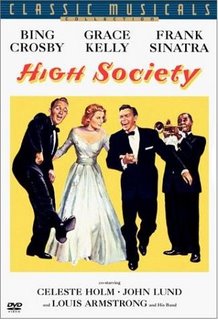According to his foolish naïveté, it's the housing boom that drives the middle class out of the city, not misguided market intervention (which is a truely understandable conclusion for an empiracist who illogically correlates a boom in the housing supply with the exodus of middle class workers and deduces that an increased supply of a good = higher prices).
Go figure.
Below are the comments I left this wunderkind.
"This is one of the byproducts of the housing boom and revitalization of urban areas."
That dog won't hunt.
This is a direct product of people naively believing in the Central Planning Fairy.
The main reason why middle class incomed people are being priced out of the cities is tri-fold:
The primary problem is the irrational belief in the goodness of centrally planned zoning; that which dictates the density, dimensional proportion, usage type, etc. allowed. Of course planners are only human, so they cannot fully forsee all the long-ranging effects of their economic devestation and class-polarity housing policies.
The act of zoning is the grand pretense that experts have the right and privilege to tell you what is good for you, Citizen Joe, as though Joe would not have common sense enough to not live in unlivable living conditions.
It thus serves to stifle development of all kind, leaving unmet demand at all price levels, but most especially the middle and lower price ranges.
Think about it, because it's purely logical. If you restrict availablity of any given product, the price will rise as people will bid up prices. Those who cannot afford to bid higher must seek alternatives. Those alternatives include finding housing in less desired areas, and maybe even out of state.
Essentially, zoning thus serves to raise the price of housing by restricting competition. When private organizations engage in this activity, it is known as cartelization and angrily condemned. But when pretensious city planners do it, they are met with celebration as anybody can attest about the shameful participation and agitation by groups such as ACORN or the GVHPS.
Secondarily, the white collar workers are the direct victims of the price war, as they cannot bid away the same quality housing as the rich, and they must live in inferior housing, less choice neighborhoods, etc.
But tertiary, and most insultingly, the white collar workers are the ones subsidizing the lower classes, who thru the mechanizations of the city and state (such as Section 8, HUD, and rent control/stabilization, and IMD regulations*), end up bidding away the housing with the middle classes' money!
So in the end, the white collar worker are the rat which gets chopped from both ends-- the rich can afford the higher prices (and might even prefer the exclusivity the housing shortage provides), and the lower class uses the middle classes redistributed money to buy up the lower end product. It's no wonder the middle class are "fleeing", as they are not in any politicians grace to not be plundered.
The definition of insanity is to continue to act in a manner which is detrimental to your well being, because only the insane repeat the same actions and expect different and better results each time around.
Alternativly, we can pull our heads out of the sand and abandon these puerile fantasies of "smart", managed growth, and leave it to the wisdom of the common individual to decide how tall is too tall, how dense is too dense, etc.
* This was introduced into the blog post for the sake of clarity and does not appear in the original comment.







